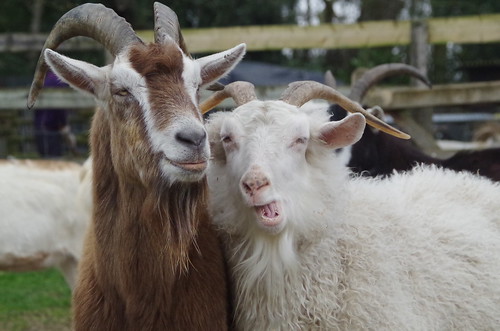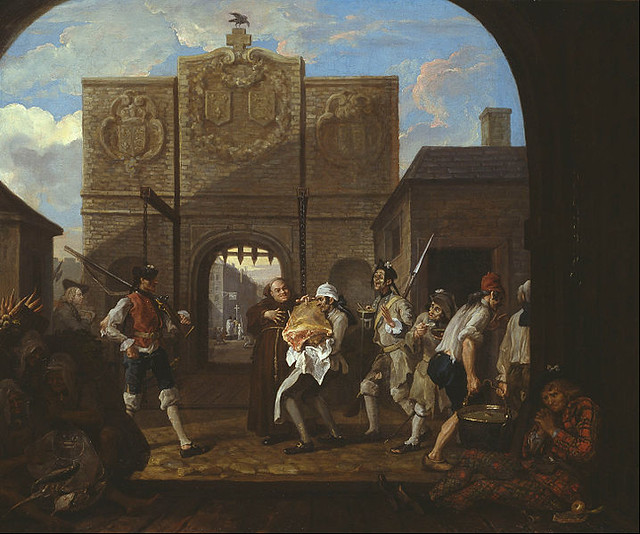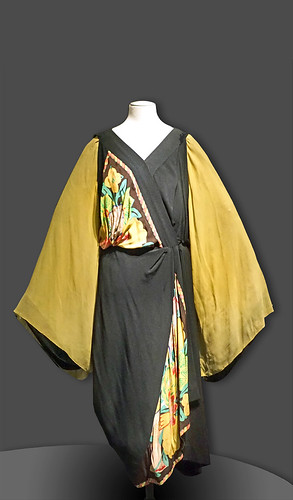Welcome to Word Buzz Wednesday, your go-to place for the most interesting words of the week. The latest: ante-dating a fashion term, an unfunny parody, goat love.
capsule wardrobe
“In 1985, Donna Karan launched a collection centered on what she called her seven easy pieces. It offered working women a stylish, flattering capsule wardrobe that could be simply mixed and matched for a variety of looks—and a solution to the perennial problem of what to wear to the office.”
Marc Bain, “Why it’s so hard for women to figure out what to wear to work in 2017,” Quartz, June 11, 2017
While Business Insider says London boutique owner Susie Faux coined the term capsule wardrobe in the 1970s, there are several earlier citations. The earliest we found is from 1947, but it’s a partial citation and difficult to confirm. The earliest confirmed citation we found is from a book first published in 1956, What Shall I Wear?: The What, Where, When, and how Much of Fashion by Claire McCardell.
spoofing
“You could call it a new blend of telemarketing call, and it’s becoming harder for us to filter, thanks to what’s known as ‘spoofing.’”
Meredith Anderson, “Cracking down on unwanted calls,” WRDW-TV, June 15, 2017
Spoofing, says WRDW-TV, refers to “when telemarketers use sneaky software to create a fake caller ID from a local number so you think you are getting a real call from a local number.” Spoofing can also involve fake email addresses and URLs, says Investopedia.
The word spoof meaning hoax or deception originated around 1889 from spouf, a game invented by British comedian Arthur Roberts. Spoof came to mean to parody or satirize around 1914.
cyber-CANOE
“At the University of Hawaii at Manoa, they have what’s called a cyber-canoe — no, it’s not a virtual boat. It uses ultra-high resolution screens that are seamless light emitting diode displays — LED screens.”
Karin Heineman, “3-D Wall of Virtual Reality,” Inside Science, June 16, 2017
CANOE of cyber-CANOE stands for “cyber-enabled collaboration, analysis, navigation, and observation environment,” and is “a hybrid reality visualization environment allowing you to look at large-scale data in resolutions that we couldn’t achieve previously.”
Pinoy pood
“They come stuffed in red Chinese takeout bags with ‘Chinese food’ crossed out and rewritten as ‘Pinoy pood’ — joking slang for ‘Filipino food.’”
Ligaya Mishan, “In Tama’s No-Frills Space, the Filipino Food Is Anything But,” The New York Times, June 15, 2017
Pinoy is an informal way of saying “Filipino” and seems to come from –pino of Filipino and the suffix –y. As for where pood comes from, we’re really not sure. If we had to wager a guess, perhaps the p- of pagkain, the Tagalog word for “food,” and the –ood of “food.” While we may not know were pood comes from, we do know we like this parody.
rush-grumble
“This is what’s called the ‘rush-grumble.’ The noises sound like blubbering, mewing, snuffling, clucking, almost like a dog squeaky toy that’s seen better days.”
Andrew Amelinckx, “Goat Sex: Everything You Wanted to Know But Were Afraid to Ask,” Modern Farmer, June 16, 2017
The rush-grumble is an all-in-one caprine mating call and dance. Modern Farmer says the buck runs next to the female, “nuzzling her side and rear with his tongue out and his front legs and ears jutting forward, all while hooting and hollering like a country boy at a monster truck rally.” And they say goat-romance is dead.
[Photo: “Toby and Clarissa (2)” by The Case Farm, CC BY 2.0]






